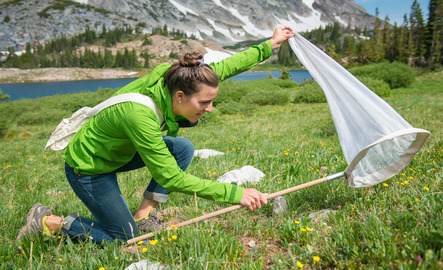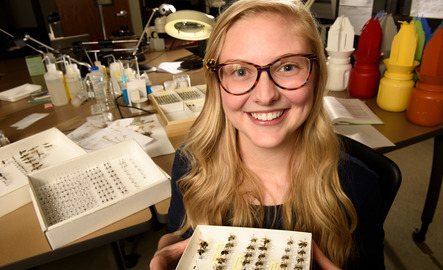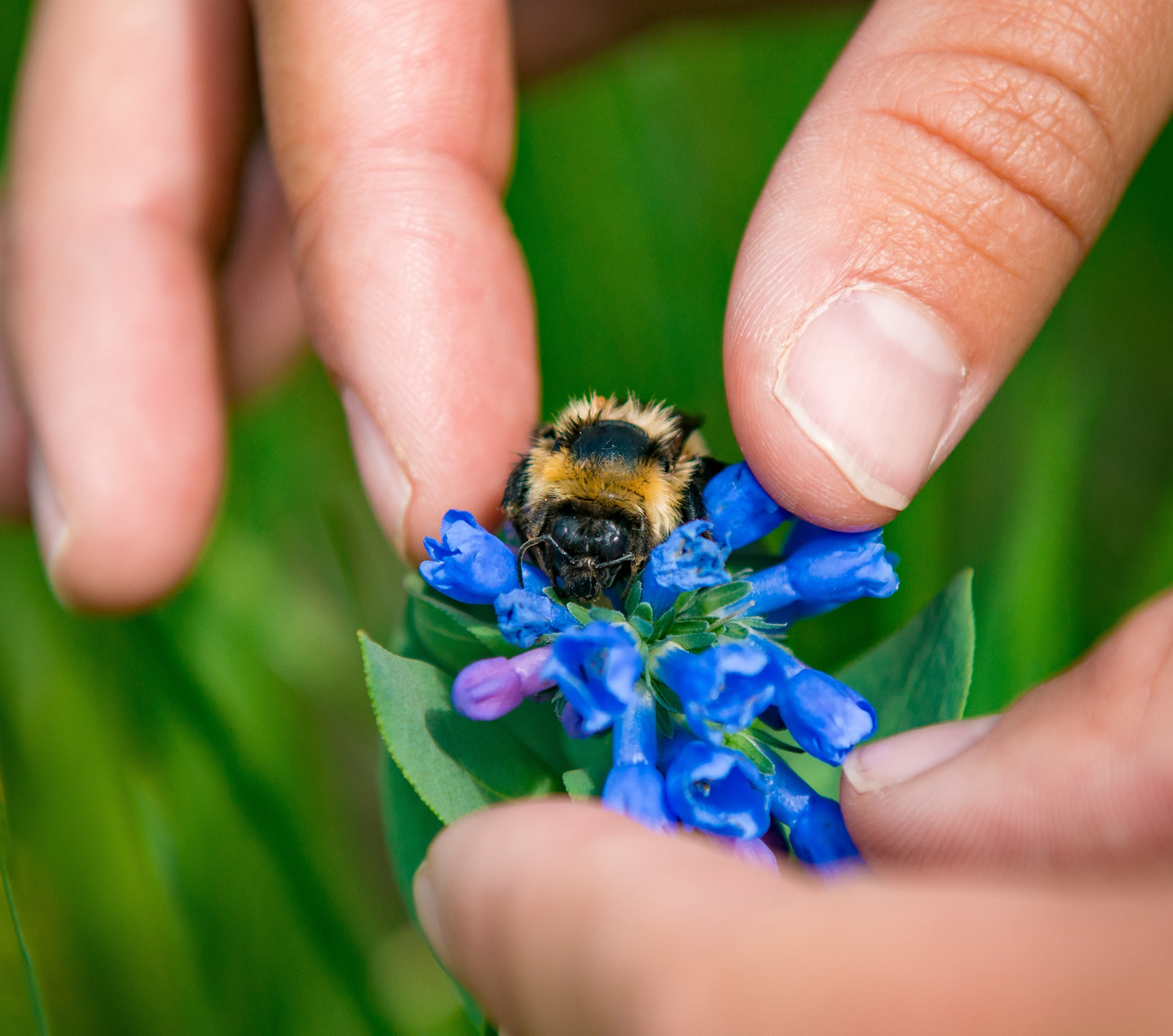Learn More About the Entomology Graduate Programs
The University of Wyoming’s entomology graduate programs are highly interdisciplinary, collaborative and field-based. Throughout their degree programs, students are given opportunities to work with visiting scientists and other students to research different foci and collect data on insects across the world.

Entomological students at the University of Wyoming focus on biodiversity, integrated
pest management, statistical analysis and more. Courses in each of these areas help
students understand the widespread effects insects have on agriculture, human health
and the functioning of ecosystems. Learn about each graduate program below.
M.S. Program:
Thesis Track:
This track requires the university's minimum degree requirements and an oral examination.
Non-thesis Track (not Ph.D. eligible):
This track is a terminal degree program that requires 30 credit hours of graduate
credit — including 9 credit hours of required courses, 11 credit hours of required
electives, and 10 credit hours of other electives. Students completing this option
will not qualify for a subsequent Ph.D. program at the University of Wyoming.
Regardless of track, the M.S. in entomology requires 30 credit hours (at least 12
from entomology) to be approved by the student’s graduate advisory committee and an
approved research plan.
View complete M.S. in entomology curriculum details.
Ph.D. Program:
This program requires 72 credit hours (at least 12 from entomology) — including credits
earned during a master’s degree — that are approved by the student’s graduate advisory
committee and an approved research plan.
Candidates must complete the minimum requirements for the Doctor of Philosophy degree.
They must additionally complete a preliminary examination (written and oral) covering
knowledge related to the discipline and an oral final examination.
View complete Ph.D. in entomology curriculum details.
University of Wyoming entomologist Scott Shaw and colleague Eduardo Shimbori gained a moment of fame by naming several newly discovered South American insect species for celebrities — including a wasp for singer and musician Shakira (Aleiodes shakirae).

What can you do with an entomology degree?
With a master’s or Ph.D. in entomology, you’ll have a wide range of career paths to explore. You might lead research on insect behavior, support crop and ecosystem protection or work in public health, conservation or education. Whether in the lab, the field or shaping policy, demand for entomology expertise is growing.
- Plant Health Safeguarding Specialist
- Biological Control Specialist
- Aquatic Ecologist
- State Survey Coordinator
- Research Assistant
- Professor
- Water Resource Planner
- Greenhouse Supervisor
- Plant Genetics Lab Technician
- Horticulture Program Coordinator
- Greenhouse Coordinator
- United States Department of Agriculture
- Colorado Department of Agriculture
- Denver Water
- Red Sun Farms
- Chadwick Ecological Consultants
- University of Wyoming
- Texas A&M University
- University of Florida
Entomological studies at the University of Wyoming focus on biodiversity, integrated pest management, statistical analysis and modeling and more. Understanding the biology, ecology and classification of insects is crucial to understanding the widespread effects insects have on agriculture, human health and the functioning of ecosystems.
Yes, absolutely! With a degree in entomology—especially a master’s or Ph.D.—you can work in public health roles focused on vector-borne diseases like malaria, dengue or Lyme disease. Entomologists play a key role in researching, tracking and controlling insects that impact human health.


